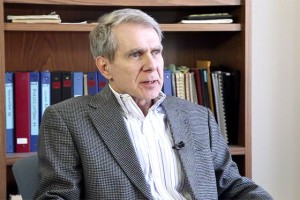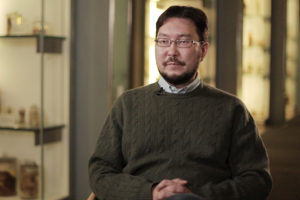Principles of Invention
Microbiologist Kim Lewis on the engineering approach to invention, the perfect solution, and abstracting the p...
How did fMRI promote dopamine studies? How do we make decisions on the basis of how much we value different things? What is the connection between an unexpected reward and learning? These and other questions are answered by Assistant Professor of Psychology at Stanford University, Samuel McClure.
There’s been a lot of interest in the past, probably, 20 years now trying to understand how it is that human behavior arises from brain activity. And there’s been a lot of progress in terms of understanding this, really because our understanding of this one particular brain system, the dopamine system, has really advanced. The dopamine system is a pretty interesting system: there exist about half a million neurons, dopamine neurons in the human brain, and they’re located in deep structures down in the midbrain. It’s really evolutionarily very old. And these neurons – half a million sounds like a lot, but that’s not that many in the scheme of the brain, where you have hundreds of billions of neurons. So they’re just half a million and they project from this one old little nucleus of cell bodies and throughout the rest of the brain, and they release this neurotransmitter dopamine.
It has been known since the 50’s that dopamine is really important for experiencing pleasure. So if you stimulate the system either elecrically with an electrode or chemically with pharmacological agents, then animals find this extremely rewarding, and people do, too. And so it turns out that every drug of abuse that people use activates the dopamine system either directly or indirectly.
You know, some of the early studies were pretty simple, so you just say:“Here’s a task, a little task to press the buttons as fast as you can, and I’ll pay you different amounts of money for doing this correctly.” And you find that these signals scale with the amount of money you can make.

Microbiologist Kim Lewis on the engineering approach to invention, the perfect solution, and abstracting the p...

Bioengineer James Collins on genetic toggle switch in E. coli, bacteriophage, and engineered probiotics

Biologist Arkhat Abzhanov on morphological diversity in birds, Hawaiian honeycreepers and how data on skull mo...